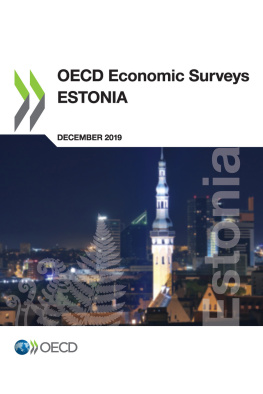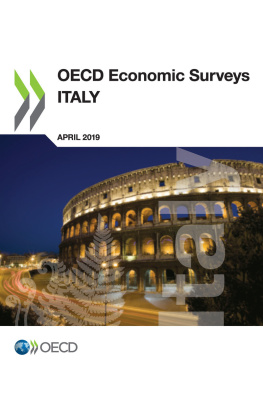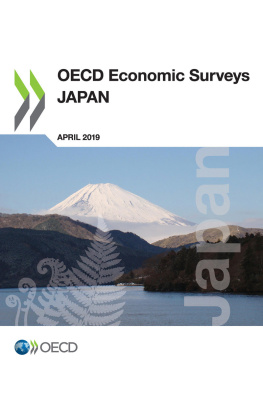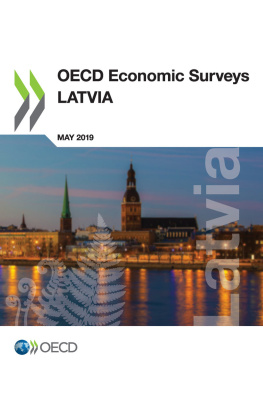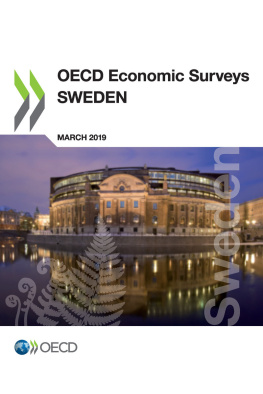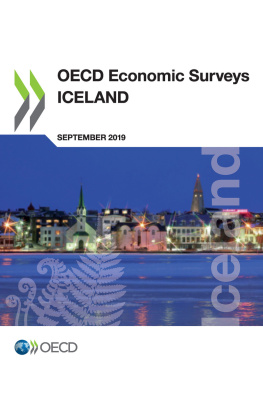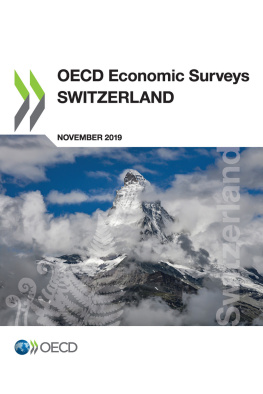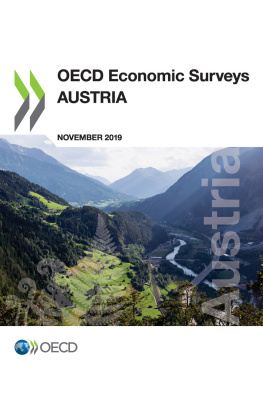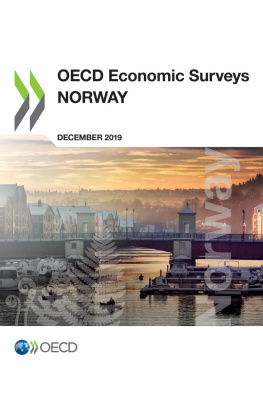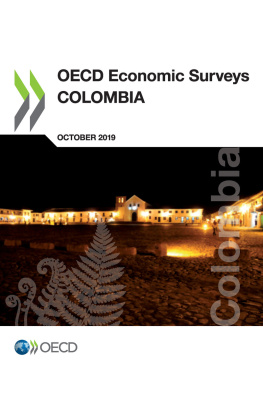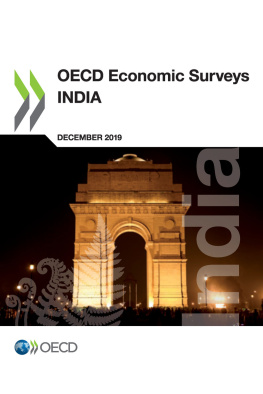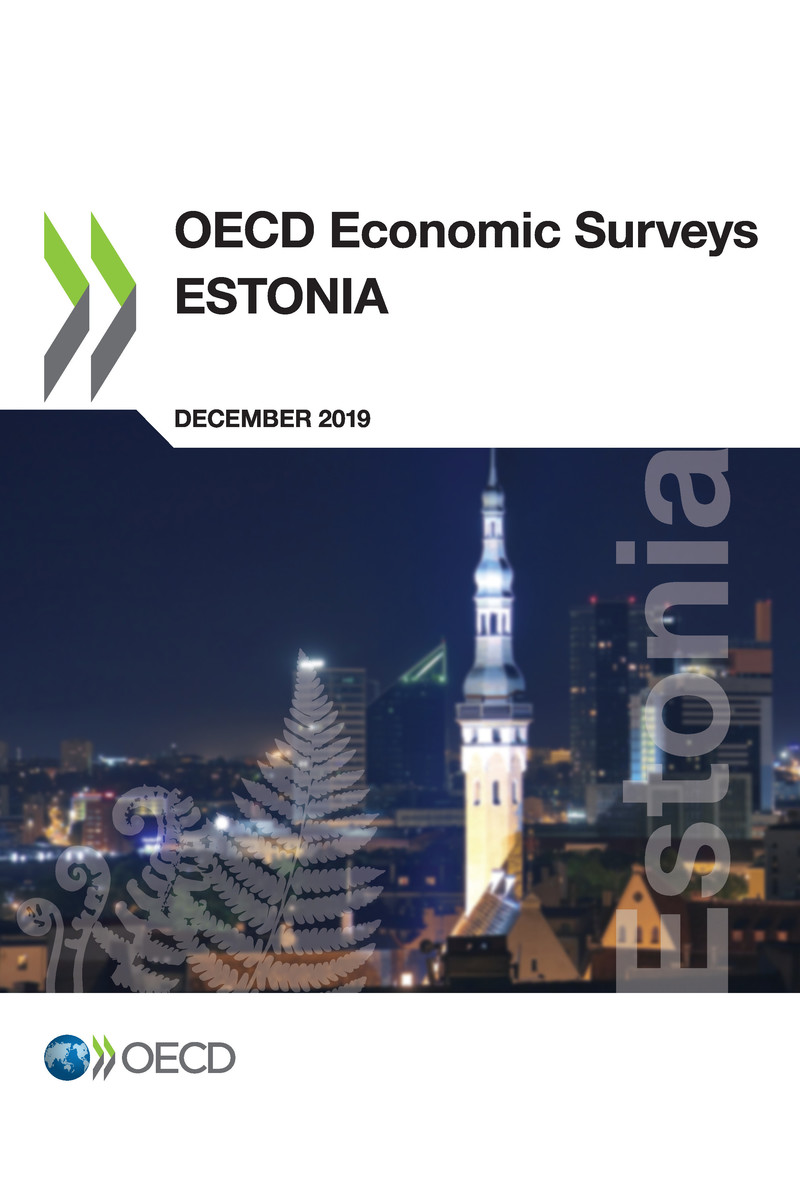OECD Economic Surveys: Estonia 2019
Please cite this publication as:
OECD (2019), OECD Economic Surveys: Estonia 2019 , OECD Publishing, Paris, https://doi.org/10.1787/f221b253-en .
Metadata, Legal and Rights
ISBN: 978-92-64-61569-4 (print) - 978-92-64-53171-0 (pdf) - 978-92-64-45471-2 (HTML) - 978-92-64-18244-8 (epub)
DOI: https://doi.org/10.1787/f221b253-en
OECD Economic Surveys
ISSN: 0376-6438 (print) - 1609-7513 (online)
OECD Economic Surveys: Estonia
ISSN: 2221-2299 (print) - 2221-2302 (online)
This document, as well as any data and map included herein, are without prejudice to the status of or sovereignty over any territory, to the delimitation of international frontiers and boundaries and to the name of any territory, city or area.
The statistical data for Israel are supplied by and under the responsibility of the relevant Israeli authorities. The use of such data by the OECD is without prejudice to the status of the Golan Heights, East Jerusalem and Israeli settlements in the West Bank under the terms of international law.
This Survey is published on the responsibility of the Economic and Development Review Committee of the OECD, which is charged with the examination of the economic situation of member countries.
The draft report was discussed at a meeting of the Economic and Development Review Committee on 12 November 2019, with participation of representatives of the Estonian authorities.
The Secretariats draft report was prepared for the Committee by Margit Molnar and Jon Pareliussen under the supervision of Patrick Lenain. Damien Azzopardi provided statistical assistance and Stephanie Henry provided editorial support. The Survey benefitted from contributions by Andrs Fuentes and comments by Christina Von Rueden, Dirk Pilat, Bert Brys, Natia Mosiashvili, Rudiger Ahrend and other OECD staff. Support from the government of Estonia is gratefully acknowledged.
The previous Economic Survey of Estonia was issued in September 2017.
Photo credits: Cover iStockphoto.com/Oleksiy Mark.
Corrigenda to publications may be found on line at: www.oecd.org/about/publishing/corrigenda.htm .
OECD 2019
The use of this work, whether digital or print, is governed by the Terms and Conditions to be found at http://www.oecd.org/termsandconditions .
Executive summary
Growth is strong, although slowing
Estonias economy continues to perform well, even though growth is slowing somewhat. Growth, however, could be more inclusive and there is room to boost spending in areas supporting long-term equitable growth.
Estonia has continued to enjoy a fast convergence . However, many wellbeing challenges still need to be addressed: inequalities in income, health, environmental quality and other aspects of life, which vary across regions and by level of education, between genders and urban and rural areas. How to lift productivity by embracing digital technologies for stronger and more inclusive growth is the focus of this survey.
Figure 1. Growth is strong by OECD standards

Source : OECD Analytical Database
Growth will ease going forward , moderating wages and inflation, as international demand softens and domestic pressures abate, notably in construction. The outlook is vulnerable to external events, including global trade tensions.
Table 1. Economic growth remains strong |
|---|
(annual growth rate unless specified) | 2018 | 2019 | 2020 |
|---|
GDP at market prices | 4.8 | 3.2 | 2.2 |
Private consumption | 4.4 | 2.7 | 3.2 |
Government consumption | 0.8 | 2.4 | 1.5 |
Gross fixed capital formation | 0.9 | 14.1 | 1.7 |
Exports of goods and services | 4.3 | | 1.1 |
Imports of goods and services | 5.7 | 3.8 | 2.2 |
Unemployment rate (% of labour force) | 5.4 | | 5.1 |
Harmonised index of consumer prices | 3.4 | 2.4 | 2.3 |
Current account balance (% of GDP) | | 1.4 | 0.9 |
General government financial balance (% of GDP) | -0.6 | -0.3 | -0.4 |
Source: OECD Economic Outlook 106 database. |
Fiscal policies have been mostly prudent, resulting in the lowest debt in the OECD. In the recent upturn, fiscal policy has become pro-cyclical, which should be avoided. The free play of automatic stabilisers should be allowed and in case of a strong downturn, the exemption clause used. Extending the real estate tax base to residential real estate and higher environmental taxes and fees could partly finance long-term spending needs on infrastructure, health and social security and would provide room for cuts in labour and consumption taxes. Monetary policy will be supportive as growth is slowing.
P roposed changes to the pension system pose risks. The proposal to allow opt-out of the mandatory privately-managed second pillar of the pension system and early withdrawal of funds would boost government revenues, but may threaten macroeconomic stability and future pension adequacy. Moreover, impacts of the proposed changes have not been properly assessed. Withdrawal before retirement should not be allowed and pension funds should be more transparent about their costs and better governed to achieve greater efficiency and higher returns.
Figure 2. General government debt is very low


